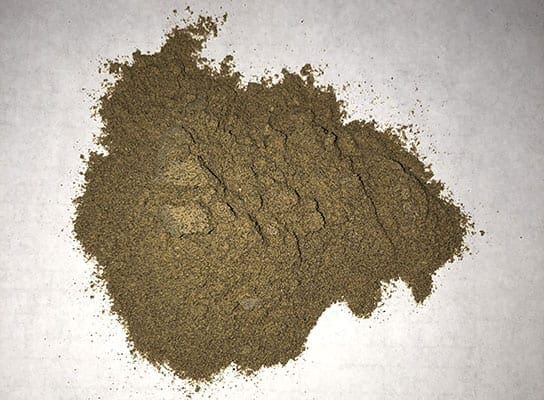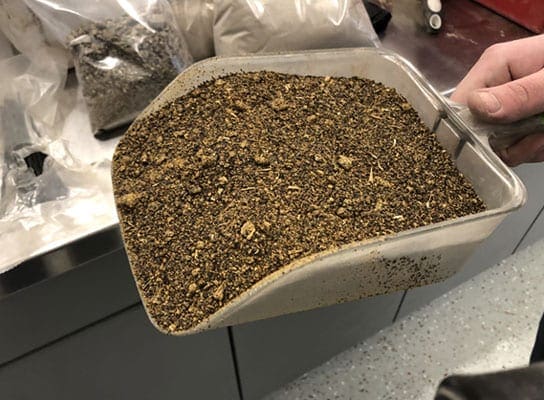Select Language:
The STET electrostatic separation process is completely dry, requiring no water or chemicals. Dry electrostatic separation methods offer an opportunity to generate new and more functional plant protein products, including canola seed meal or rapeseed meal with increased protein content for use as a high-value animal feed. This protein-enriched seed meal can be used as a non-GMO replacement for soy meal, and add value to oil-crushing operators and feed producers.
A sample of solvent-extracted canola meal was purchased by STET for pilot testing. The canola meal was finely milled (dry) using a hammer mill. From a starting particle size (d50) of 500 microns, the canola meal was reduced to a fine particle size appropriate for the STET separator, at an energy consumption less than 60 kW per Ton. The finely milled canola seed meal demonstrated excellent separation of protein. The feed sample containing 36-38% protein (dry basis) was separated into a protein enriched product in a single pass through the STET separator.

The STET tribo-electrostatic belt separator demonstrated the capability to process finely ground canola meal to significantly upgrade the protein content, making it more valuable as animal feed. The only preparation of material prior to introduction into the STET separator was grinding, which was successfully accomplished using a hammermill, a mature technology already in widespread use in the oilseed processing industry. The STET triboelectric belt separator offers many benefits for processing canola seed meal and rapeseed meal including continuous operation, a high feed rate of up to 15 tons per hour feed, low energy consumption, ease of operation, and high mechanical reliability.
